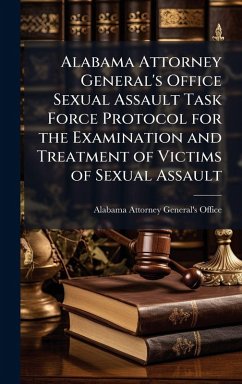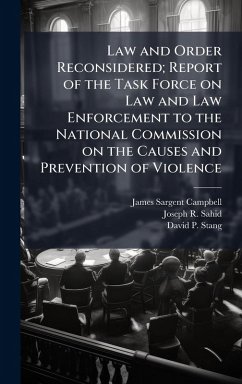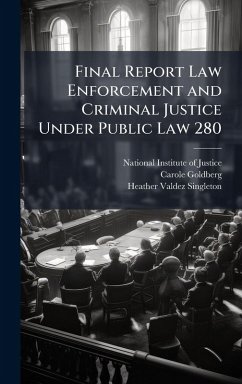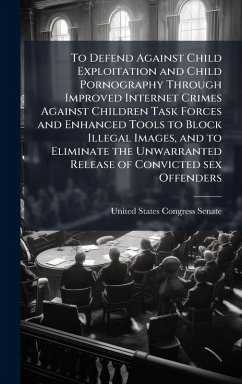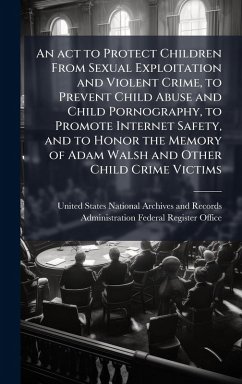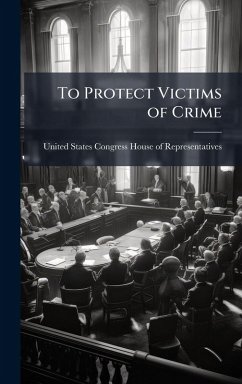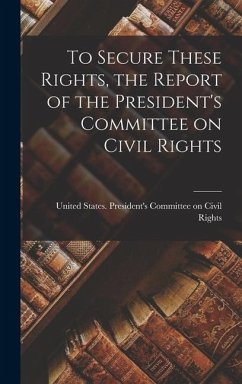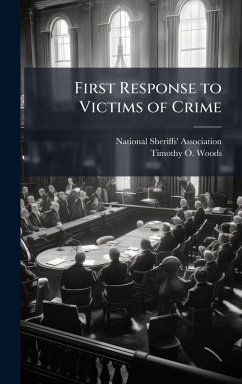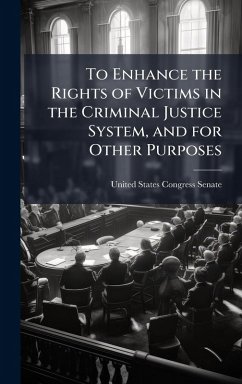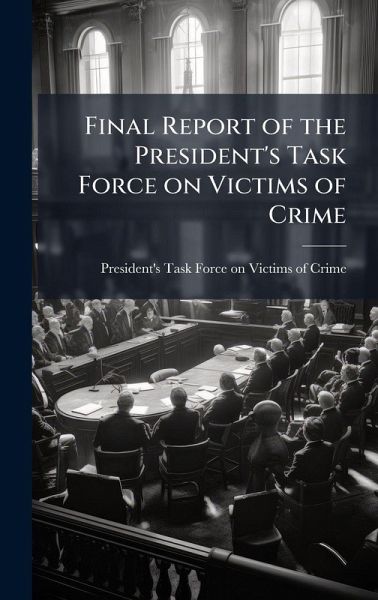
Final Report of the President's Task Force on Victims of Crime
Versandkostenfrei!
Versandfertig in über 4 Wochen
29,99 €
inkl. MwSt.

PAYBACK Punkte
15 °P sammeln!
Governments should enact legislation ensuring that victims' and witnesses' addresses not be made public (or available to the defense) unless the court presents a clear need. Hearsay should be made admissible in preliminary hearings so that victims need not testify in person. Other suggested laws would tighten bail restrictions, abolish the exclusionary rule as it applies to fourth amendment issues, and expand employee assistance programs for crime victims. Police departments should develop training programs that emphasize victims' needs and establish procedures that inform victims of the statu...
Governments should enact legislation ensuring that victims' and witnesses' addresses not be made public (or available to the defense) unless the court presents a clear need. Hearsay should be made admissible in preliminary hearings so that victims need not testify in person. Other suggested laws would tighten bail restrictions, abolish the exclusionary rule as it applies to fourth amendment issues, and expand employee assistance programs for crime victims. Police departments should develop training programs that emphasize victims' needs and establish procedures that inform victims of the status of investigations, a major concern. Prosecutors should be ultimately responsible for informing victims of the status of their cases; judges should allow victim input at sentencing, establish separate waiting rooms for prosecution and defense witnesses, and order restitution in cases involving financial loss. Parole boards should also keep victims informed of hearing dates and allow victims to testify. The report also reviews the many ways private agencies can help victims, including psychological treatment, spiritual guidance, and referral services. It proposes that the sixth amendment to the Constitution be amended to allow victims "to be present and to be heard at all critical stages of judicial proceedings." Appendixes include the study methodology, a description of model victim/witness units, reference notes, and a list of witnesses at Task Force hearings. This work has been selected by scholars as being culturally important, and is part of the knowledge base of civilization as we know it. This work was reproduced from the original artifact, and remains as true to the original work as possible. Therefore, you will see the original copyright references, library stamps (as most of these works have been housed in our most important libraries around the world), and other notations in the work. This work is in the public domain in the United States of America, and possibly other nations. Within the United States, you may freely copy and distribute this work, as no entity (individual or corporate) has a copyright on the body of the work. As a reproduction of a historical artifact, this work may contain missing or blurred pages, poor pictures, errant marks, etc. Scholars believe, and we concur, that this work is important enough to be preserved, reproduced, and made generally available to the public. We appreciate your support of the preservation process, and thank you for being an important part of keeping this knowledge alive and relevant.



